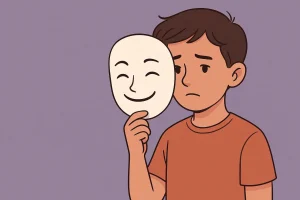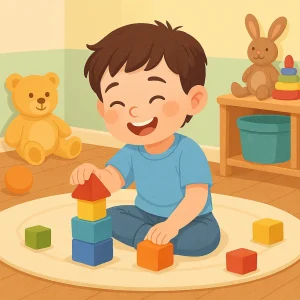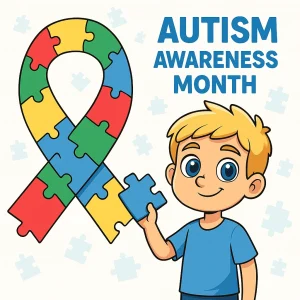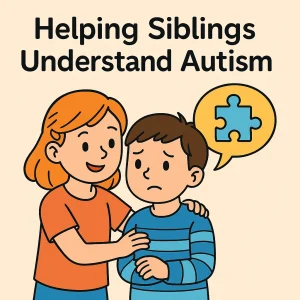Top 7 Activities to Encourage Teens With Autism
Last Updated: October 23, 2024
Engaging teens with autism in the right activities can make a world of difference in their development. While they often need extra support, structured activities help them thrive by boosting social skills, focus, and creativity. As a parent or caregiver, finding fun and engaging ways to keep your teen active is key to their growth and happiness. From solo activities to social interactions, the right approach can help them feel more confident and supported. In this article, we’ll explore the top activities for teens with autism or Autism Spectrum Disorder that can enhance their everyday lives.
1. Reading: A Powerful Tool for Cognitive and Social Development
Reading is one of the most effective activities for teens with autism. It helps improve their thinking skills, builds emotional understanding, and enhances social awareness. By reading regularly, teens can learn new words, boost their comprehension, and even get better at communicating with others.
For teens with autism, having a routine is important, and reading can fit perfectly into a daily schedule. Start with short, interesting books that match their likes—whether it’s adventure, science, or real-life stories. Over time, regular reading can help them feel calm, stay focused, and learn new things.
Books that talk about emotions and social situations can also help teens understand how others think and feel. This can make it easier for them to connect with people in real life.
Tips for Starting a Reading Routine:
- Be Consistent: Set a regular time each day for reading to create a comforting routine.
- Engage with the Story: Ask simple questions about the book to encourage conversation.
- Choose Fun Books: Pick books that align with your teen’s interests to keep them engaged.
2. Embracing Technology: A Gateway to Creative and Cognitive Growth
Technology offers many opportunities for teens with autism to learn, explore, and express themselves in creative ways. From interactive apps to virtual reality and video games, there are fun activities for autistic teens that can also support their learning.
For example, drawing apps can boost creativity while improving fine motor skills. Virtual reality (VR) allows teens to explore places like museums or parks from home, giving them safe and stimulating experiences. Educational video games help improve problem-solving, hand-eye coordination, and social interaction.
Games that focus on teamwork or role-playing are especially helpful for social skills activities. These games create a low-pressure environment where teens can practice communication and collaboration while having fun.
One great tool for supporting teens through technology is Tele-BASICS. This online therapy platform allows therapists to use interactive tools like whiteboards, videos, and educational content during therapy sessions. It helps teens stay engaged while improving their speech and cognitive skills in a fun, structured way.
Tech-Based Activities for Teens with Autism:
- Drawing Apps: Boost creativity and fine motor skills.
- Virtual Field Trips: Explore places like museums and zoos from home.
- Educational Video Games: Help develop problem-solving, logic, and social skills.
- Tele-BASICS: An online therapy tool that uses interactive activities to support therapy sessions.
3. Music: A Soothing and Developmental Experience
Music is a powerful tool for growth, making it one of the most beneficial activities for teens with autism. Studies have shown that music helps with both communication and motor skills, offering teens a way to express themselves without words. The rhythm and melody can have a calming effect, reducing stress and helping teens focus.
Listening to music is a great starting point, but introducing music lessons or encouraging your teen to join a choir can take it even further. Learning to play an instrument helps develop fine motor skills, while singing or playing in a group enhances social interactions. These are not just autism-friendly activities for teens, but also ways to boost confidence and improve coordination.
If your teen isn’t comfortable in group settings, don’t worry—music therapy can easily be done at home. Simply listening to a variety of songs, tapping along to beats, or using simple instruments can make a big difference in their emotional and cognitive development. Music provides a creative outlet and a structured activity that’s both engaging and therapeutic.
Read More: Art and Music in Online Therapy: A Path to Emotional Expression
Ways to Incorporate Music for Teens with Autism:
- Music Lessons: Enhance motor skills and encourage creative expression.
- Joining a Choir: Improve communication and social interactions.
- Music Therapy at Home: Use simple instruments or playlists to engage your teen in a calming, structured way.
4. Nature Exploration: Boosting Creativity and Social Skills
Exploring nature is a wonderful outdoor activity for teens with autism, offering both relaxation and stimulation. Nature’s calm environment helps boost creativity, reduce stress, and improve social skills. Activities like hiking, nature walks, or simply sitting outdoors can provide sensory experiences that support emotional regulation and focus.
Artistic teens might enjoy activities like sketching or photography in nature, allowing them to express themselves creatively.
Simple Nature Activities:
- Hiking or Nature Walks: Explore and enjoy nature’s beauty.
- Outdoor Sketching or Reading: Relax and engage creatively.
- Sensory Exploration: Experience different textures and sounds.
5. Exercise and Sports: Enhancing Physical and Social Interaction
Exercise plays a vital role in improving both physical and mental health, making it one of the best activities for autistic teens. Regular physical activity not only boosts mood and energy levels but also helps with sleep and overall well-being. For teens with autism, incorporating exercise can support both social and motor skills development.
Team sports like soccer or basketball encourage interaction and cooperation, helping teens practice communication in a fun, structured environment. For those who prefer less competitive activities, options like yoga or dance are great for motor skills improvement in teens with autism while also offering a way to stay active and relaxed.
These autism-friendly activities for teens allow them to work at their own pace while still enjoying the benefits of movement and social engagement. Whether it’s through organized sports or simple at-home exercises, staying active is essential for their growth.
Exercise Ideas for Teens with Autism:
- Team Sports: Develop social and communication skills while staying active.
- Yoga or Dance: Improve flexibility, motor skills, and relaxation.
- At-Home Exercises: Simple routines to boost fitness in a comfortable setting.
6. Creative Arts: Encouraging Expression and Skill Development
Creative arts are powerful activities for teens with autism, offering a way to express emotions while building motor skills. Activities like painting, drawing, or crafting not only engage their creativity but also help improve fine motor coordination. These artistic activities can serve as an outlet for self-expression, allowing teens to communicate their thoughts and feelings in a non-verbal way.
By working on projects that spark their interest, teens can experience a sense of accomplishment as they complete each creation. These autism social skills activities encourage patience and focus, as well as providing opportunities for social engagement when done in group settings or shared spaces.
Creative Activities to Try:
- Painting or Drawing: Improve motor skills and allow for self-expression.
- Crafting Projects: Foster creativity and provide a sense of accomplishment.
- Group Art Sessions: Encourage social interaction while working on fun projects.
7. Emotional Support Animals: Building Confidence and Social Skills
Emotional support animals (ESAs) can help teens with autism develop empathy, emotional awareness, and social skills. Pets like dogs or cats provide comfort and companionship, making teens feel more secure. Caring for an ESA also teaches responsibility and improves communication by encouraging interaction and routines.
Benefits of ESAs:
- Improved Communication
- Emotional Growth and Empathy
- Comfort and Companionship
Detailed Guide for Activities to Support Teens with Autism
| Activity | Specific Examples | Key Benefits | How to Get Started |
|---|---|---|---|
| Reading | Educational books, fiction, non-fiction | Improves focus, builds vocabulary, enhances comprehension | Select books based on your teen’s interests and create a daily reading schedule. |
| Embracing Technology | Drawing apps, virtual field trips (museums, zoos), puzzle or role-playing video games | Encourages creativity, problem-solving, social skills | Explore educational apps and games, set screen time limits, and introduce virtual experiences. |
| Music | Music lessons, choir participation, using simple instruments | Improves communication, motor skills, emotional regulation | Start with simple music activities at home and encourage participation in lessons or group settings. |
| Nature Exploration | Hiking, nature walks, outdoor sketching or photography | Boosts creativity, reduces stress, enhances sensory awareness | Engage in outdoor activities regularly, such as walks or sitting outside to draw or read. |
| Exercise and Sports | Team sports (soccer, basketball), yoga, dance classes | Improves physical health, social interaction, motor skills | Sign your teen up for group sports or try yoga and dance at home for a more relaxed option. |
| Creative Arts | Painting, drawing, crafting (clay, paper art) | Fosters emotional expression, enhances fine motor skills | Set up a crafting station at home with supplies and encourage your teen to explore different mediums. |
| Emotional Support Animals | Dogs, cats, certified emotional support animals | Builds empathy, emotional awareness, provides comfort | Consider adopting a pet or certified ESA to help your teen build responsibility and social interaction. |
Conclusion
Structured, engaging activities are crucial for helping teens with autism develop social skills, creativity, and emotional well-being. From reading and creative arts to outdoor exploration, these activities support their growth and improve daily life. By offering the right mix of fun and learning, you can help your teen thrive. For more tools and expert resources tailored to your teen’s needs, visit Wellness Hub and explore the latest autism therapy resources designed to enhance their development.
Frequently Asked Questions:
1. What are the best activities for teens with autism?
The best activities for teens with autism include reading, creative arts, outdoor exploration, music, and exercise. These activities support social skills, communication, and overall development.
2. How can I help my teen with autism develop social skills?
You can help your teen with autism develop social skills through structured activities like team sports, group art sessions, and interacting with emotional support animals. These activities encourage communication and social interaction.
3. Why are structured activities important for teens with autism?
Structured activities provide a predictable routine, helping teens with autism feel more secure and focused. They support cognitive development, social skills, and emotional regulation.
4. How do creative activities help teens with autism?
Creative activities like painting, drawing, and crafting help teens with autism express emotions, build motor skills, and boost self-confidence through hands-on projects.
5. What are some sensory-friendly activities for teens with autism?
Sensory-friendly activities include nature walks, yoga, and virtual reality experiences. These activities provide calm, low-pressure environments that help teens explore and learn.
6. Can exercise improve my teen’s social and motor skills?
Yes, exercise like team sports, yoga, or dance can improve both social and motor skills. Physical activities encourage teamwork, communication, and body coordination.
7. How can music help teens with autism?
Music helps teens with autism improve communication, motor skills, and emotional regulation. Singing or playing an instrument can be both soothing and developmental.
8. How can I incorporate reading into my teen’s daily routine?
Schedule regular reading time every day, and choose books that match your teen’s interests. Reading supports cognitive growth and helps teens with autism develop language and social skills.
9. Are emotional support animals good for teens with autism?
Yes, emotional support animals can provide comfort, build empathy, and improve social interaction. They offer companionship and a sense of responsibility for teens with autism.
10. How can outdoor activities benefit teens with autism?
Outdoor activities, such as hiking or nature walks, provide sensory stimulation, reduce stress, and encourage physical activity. They also help teens with autism improve focus, creativity, and social skills in a calming environment.
About the Author:
Anuradha Karanam
Speech-language pathologist (7+ years of experience)
Anuradha Karanam is a skilled speech-language pathologist with over 6 years of experience. Fluent in Tamil, Telugu, Hindi, and English, she specializes in parent counseling, speech sound disorders, fluency assessment, and speech-language evaluations. Anuradha excels at working with children with developmental disorders, offering creative and effective therapy programs. Currently, at Wellness Hub, she holds a BASLP degree and is registered with the RCI (CRR No A85500). Her patience, ambition, and dedication make her a trusted expert in her field.
Book your Free Consultation Today
Parent/Caregiver Info:
Client’s Details:
* Error Message










